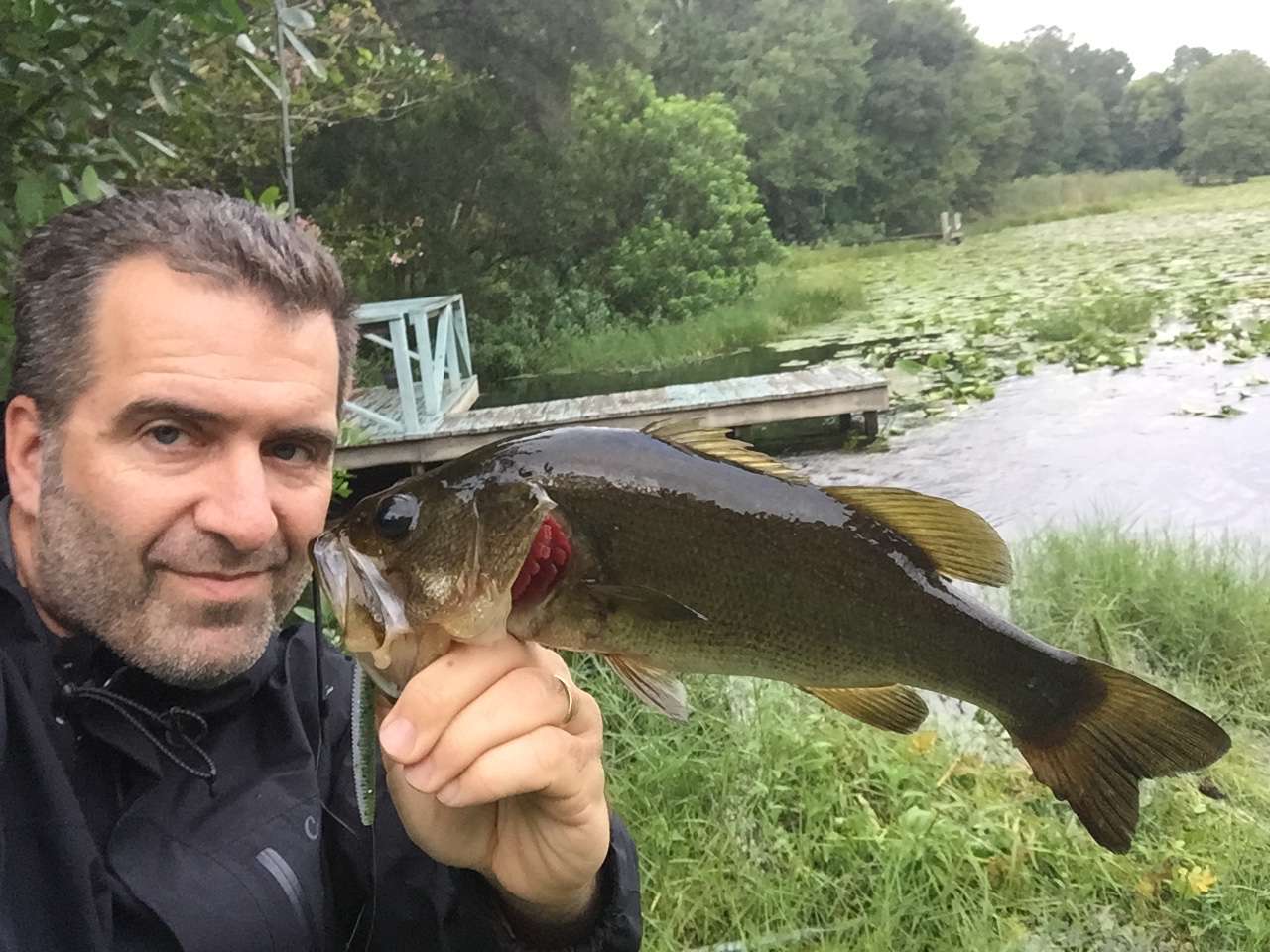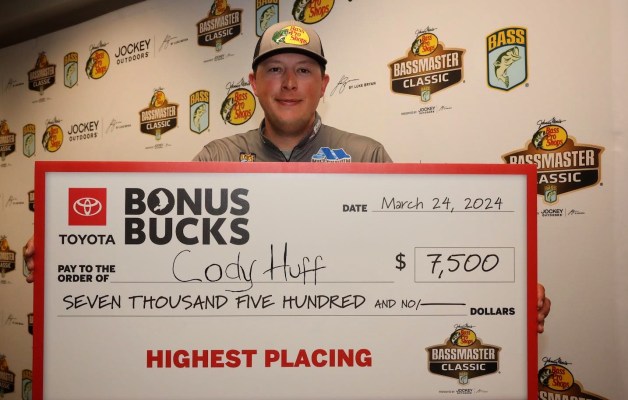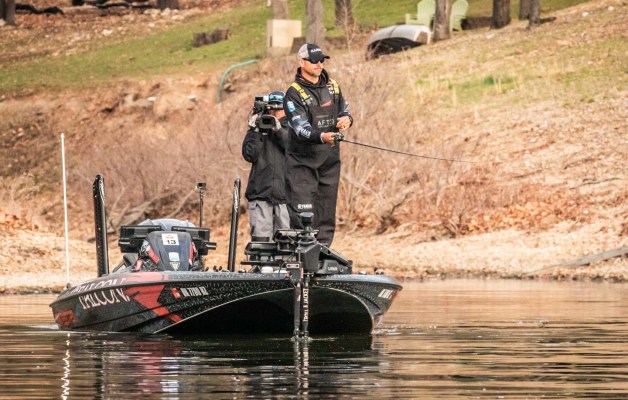
It’s always a tenuous premise — do you invest the time/expense of pre-practicing for a Bassmaster Classic? With tournament waters off limits for nearly three months prior to competition, seasonal pattern disparities leave anglers asking: “Can you really learn enough to justify the effort?”
In truth, it’s unlikely that the way you find ‘em and how you catch ‘em in pre-practice will mirror the same for Classic week. But that’s really not the pre-practice purpose, now, is it?
Rather, it’s about collecting puzzle pieces. Those pieces may vary in size, but diligent searches can, at least optimize time management, if not dial you in to an area where a new set of spring conditions brings key details into play.
We spoke with a handful of anglers who spent some pre-practice time on Grand Lake O’ the Cherokees and, while not an official representation of what all who pre-practiced found, it’s a safe bet that common threads run through everyone’s experience.
See what’s there
Oklahoma pro Luke Palmer, who notched his first Elite win at Santee-Cooper Lakes in 2023, makes his fifth Classic appearance, the best of which was a sixth place at the 2022 event at Lake Hartwell. Spending a total of five days scouting Grand in late November and then in late December, Palmer took advantage of the lower winter pool to snoop around the areas spring fish will likely favor.
“I spent three days of looking and two fishing,” Palmer said. “The last couple of years, I’ve done more (pre-practice) looking, but this year, I decided to do some fishing.
“You can mark 100 spots, but if you don’t know what’s there, you don’t know which ones are worth your time during the Classic. You have to fish to know.”
Palmer said he has previously competed on Grand, but he found some of his historical go-to areas less dependable.
“How I fished it prior was way different than how I fish it now,” Palmer said. “I learned a lot about the lake by spending those (pre-practice) days fishing.
“The things I thought were guaranteed to be an option really weren’t. That was really eye opening.”
Local favorite Jason Christie, who won that 2022 Classic, is hoping Grand produces a bookend. Despite his tournament waters experience, which dates back to his high school years, he knows the importance of banking plenty of options for what could be three days of competition.
Doesn’t everyone do that? Yes, but if Christie’s fishing Day 3, the inevitable spectator armada is likely to unintentionally compromise some of his areas.
“I spent several days on Grand, just looking,” Christie said. “I found a lot of stuff, but I knew if I’m there on the third day, I’m going to need more stuff.”
Brushing up on Grand
Adam Rasmusen, who punched his Classic ticket by winning the St. Croix Bassmaster Open at Wheeler Lake, hadn’t seen Grand since the 2021 Open. Reacquainting himself with the layout, Rasmusen followed a two-tiered search strategy.
“I side-imaged brush in 8 to 12 feet, and as I was graphing, I’d keep an eye out for shallow structure that was out of the water and mark it,” he said. “The third week of March, it should be warm enough that they should be moving up to spawn.”
Rasmusen said he limited himself to two days in late November because he didn’t want to pre-practice too much and potentially fall into the trap of soon-to-be-outdated patterns.
“I’m gonna fly by the seat of my pants and enjoy it,” Rasmusen said. “I want to show up and fish the fish in the state they’re in.
“I wanted to graph brush because that takes time, and I got that out of the way.”
See who’s home
Catching fish in pre-practice may be academic, in terms of heavily influencing Classic strategies, but overall lake impressions definitely matter.
“What I marked on my first visit — some was okay, but I was not thoroughly impressed, but when I got there (the second time), the fishing was better than I expected,” Palmer said. “For as cold as it was — highs in 30s, water temperature around 42 to 46 — the fishing was pretty good.
“It was weird; I didn’t want to leave, even though it was in the 30s and the wind was blowing 20 mph. But when you’re catching fish, it doesn’t seem as cold.”
Rasmusen also found impressive Grand Lake pre-practice quality. His best fish went 6-7, with what he termed “numerous 4s and 5s” to boot.
Scott Canterbury, who placed third at last year’s Classic, put in two pre-practice days the last week of December. While he hadn’t planned to fish, he picked up a rod the last 15 minutes and caught a solid keeper.
Catching a good one was encouraging, but he focused his time on recon that’s likely to generate Classic consistency.
“The times I’ve been to Grand, it seems that sometimes, bites are hard to come by, but it has really good quality fish in it,” Canterbury said. “It’s just a matter of figuring out how to generate more bites.”
Prepare for the rise
Canterbury said his last visit to Grand, 10 years ago, saw flood conditions pushing the water into the willow trees. Seeing the lake during a winter low proved strategic.
“I was trying to look at transition banks and see what types of structure I might be fishing,” he said. “That way, if I do get on something, I would like to know where more of it is.”
“I marked a bunch of areas that I thought might be good, because when you show up at practice, you like to know where to start and now I think I do. I knowing which direction to turn when I come out of takeoff.”
Central to that thought is the understanding of where the fish will be heading. Canterbury’s biggest pre-practice takeaway was the shallow water navigational consideration.
“I just didn’t remember that lake being as flat as it is,” he said. “It’s super shallow and if somebody wants to go fish the bank, there’s a lot of places where you can’t even get close enough to the bank without your trolling motor hitting bottom. There’s a lot of rock on Grand and there are not many places where it’s clay or mud.
“It was a good time for me to be out there. There are a lot of places where fish area going to move up, and you’ll want to stay out off of that.”
That being said, Canterbury’s hopeful that even a typical spring rise will bring some of his findings into play.
“I marked a ton of areas with a lot of shallow cover where, if the water comes up 10 inches, it will cover it up,” he said. “People (who hadn’t found this cover) won’t know where it is, but if the water comes up a foot, I have a lot of it to run.”
Versatility and volatility
Combining his pre-practice productivity with his general Grand Lake knowledge, Palmer said he’s expecting a diverse array of early spring options.
“I think when we get there, guys will be able to fish how they want to,” he said. “There will be guys fishing out deep with the YUM Sonar Minnow and stuff like that. And guys are going to be able to throw a spinnerbait or a squarebill.
“It’s gonna be a fun Classic, because that time of year, everything can play. Your bluffs can play, the backs of your creeks can play, your midrange. Everything’s not so compact that time of year; there’s a good variety.”
With a decade separating pre-practice from his last Grand visit, Canterbury said he intentionally avoided catching too many. In his view, taking no deep impressions into the Classic will keep him focused on fishing the moment.
“You don’t want to get locked into anything,” Canterbury said. “The water temperature was 47 to 48 degrees and the lake was low, but we could have a warm rain and it could come up 4 feet right before the tournament. It could get muddy; the water temp could be in the mid 50s or it could be in the upper 40s.
“A springtime tournament on Grand is going to dictated by the weather,” Canterbury said.
Christie agreed: “We’re going to Grand at a time when it’s wide open. It all depends on what Mother Nature throws at us. If we have a hard winter, it can be one of those Classics where everybody is bundled up and there’s ice, there’s snow, or it can be one of those where it’s beautiful and the fish are up on the bank.
“It wouldn’t surprise me if the water temperature is in the 40s, and it wouldn’t surprise me if it was 60,” Christine concluded. “The water can be clear, or it can be blown-out muddy. It’s a special time of year at a special place.”





